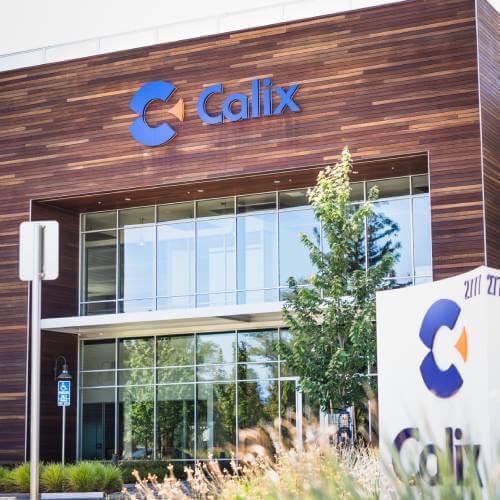'This is a big deal,' wrote Calix's Michael Weening of the company's decision to ban employee use of ChatGPT. However, he said the company eventually plans to use large language models (LLMs).

The CEO of Calix – a telecom equipment and services vendor – said the company is banning ChatGPT across its operations. In a LinkedIn post, Calix's Michael Weening said the move is in response to reports that some of Samsung's confidential information leaked through the platform.
"Think about it, what is an AI engine? It is a learning engine therefore everything that goes into it becomes part of the learning models – which is why they lay claim to everything for it to work. IP, customer data, or other confidential internal items become part of residual knowledge rights," Weening wrote. "This is a big deal."
However, he said the company plans to use Microsoft Copilot – a product based on ChatGPT-style large language models (LLMs) – as it becomes available. "The world is changing. Big time," Weening noted.
Figure 1:  (Source: Sundry Photography/Alamy Stock Photo)
(Source: Sundry Photography/Alamy Stock Photo)
The move comes as little surprise. LLMs like ChatGPT have taken the tech world by storm. Indeed, just this week Amazon announced its own entry into the space following similar launches by Google and Microsoft.
However, they've also sparked plenty of controversy. Italy has banned ChatGPT and other European countries are considering similar moves over privacy concerns.
In the US, the Biden administration is considering regulations of its own. "Responsible AI [artificial intelligence] systems could bring enormous benefits, but only if we address their potential consequences and harms," noted Alan Davidson of the NTIA, in a release. The White House agency plans to seek comment on the topic. (Interestingly, the NTIA is also in the midst of distributing billions of dollars in subsidies into the telecom industry).
Despite Calix's move against ChatGPT, most telecom executives believe the technology will eventually play a role in the telecom industry – and the wider business market – at some point. "I think ChatGPT should be thought of as an exceptionally good chatty tool to help with a large and general set of human queries and tasks," summarized Marcus Weldon, the former CTO of telecom vendor Nokia, in a recent post on LinkedIn.
Related posts:
— Mike Dano, Editorial Director, 5G & Mobile Strategies, Light Reading | @mikeddano
Editor's Note: On the advice of my boss Phil Harvey I tried using ChatGPT to write this article. After some back and forth here's what it came up with. Not terrible.
Calix, a California-based telecommunications equipment supplier, has banned the use of ChatGPT, an artificial intelligence-powered productivity tool, across all of its business functions and devices. This decision was made following concerns raised by the company's CEO, who highlighted the risks associated with the residual knowledge rights of the AI engine. He noted that everything entered into the system becomes part of the learning models, including confidential information such as customer data and IP. This information could potentially become publicly available, compromising the company's privacy and security.
This move follows similar concerns raised by other companies and regulatory bodies. Samsung employees were found to have leaked company secrets using ChatGPT, and the US government is currently studying the possible regulation of AI tools like ChatGPT. Germany's data protection chief has also warned that the tool could be blocked if necessary to protect data privacy.
The use of AI tools like ChatGPT is being closely scrutinized as the world grapples with the implications of rapidly advancing technology. Companies are weighing the benefits of such tools against the potential risks they pose to privacy and security. As AI continues to evolve, it is likely that more businesses and regulators will be grappling with similar concerns.
About the Author(s)
You May Also Like


.jpeg?width=300&auto=webp&quality=80&disable=upscale)








